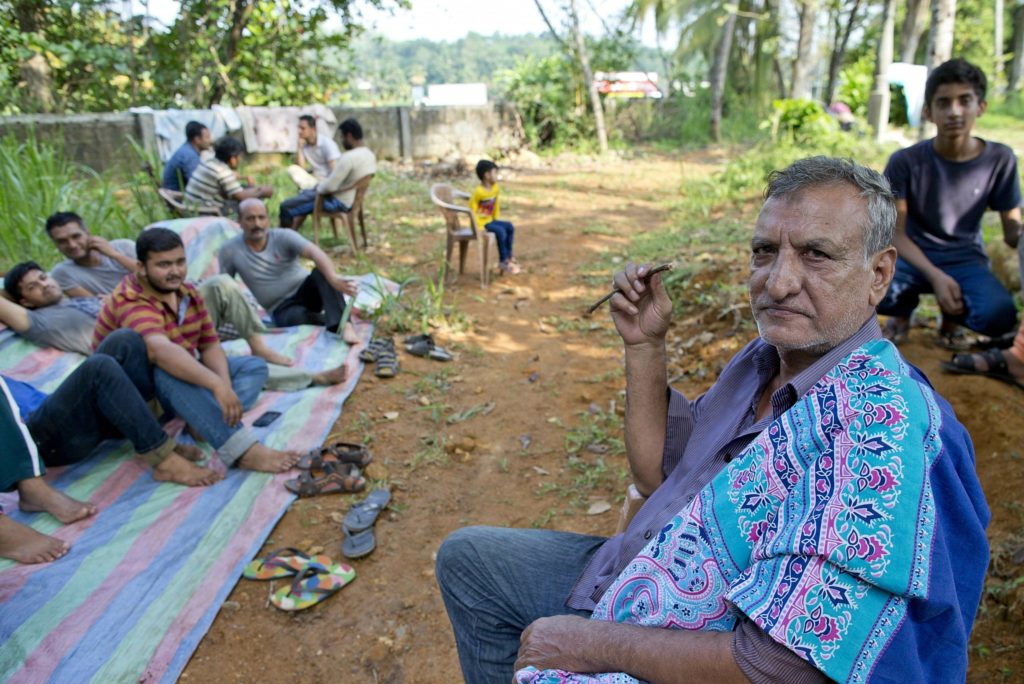Photograph courtesy The Muslim Times
“Please save my family, please” was the message I received from a Pakistani friend last weekend. It was about her family of seven, including 3 children, who had fled Pakistan after facing persecution as Christians. They had arrived at the Katunayake airport on the morning of 25th October, seeking safety, but was detained and deported back by the Sri Lankan Immigration on the night of 28th October.
“Can anybody help us” was also a message I got in the weekend – from a Pakistani Ahmadi family, who had also fled persecution in Pakistan and come to Sri Lanka seeking safety. But they too were deported back.
In response to their desperate appeals, I contacted the head of UNHCR in Sri Lanka, the UN Resident Coordinator, Human Rights Commission. Despite their efforts, the two families were deported. Through friends, I also contacted government politicians, including the Prime Minister. The answers I got was they are busy with election campaigns, and helping these families might harm prospects of their candidates. Clearly, electoral campaigners mattered more than desperate pleas of two families who had come to Sri Lanka to save their lives.
I was also informed that the policy of the government is to deport asylum seekers. That there have been others who have been deported.
Both these families deported had applied for asylum to UNHCR Sri Lanka while being detained at the airport. Deporting them is a blatant violation of the principle of non-refoulment.
It is also a violation of the 2005 Memorandum of Understanding (MOU) between the government of Sri Lanka and UNHCR, where the government has committed to facilitate UNHCR’s mandate in favour of asylum seekers and refugees, with article 4 of the MoU assuring UNHCR of “unimpeded access” towards asylum seekers. But in these cases, the asylum seekers were denied access to UNHCR.
Aspects in this MoU related to UNHCR’s mandate on asylum seekers was further elaborated through a Terms of Reference (ToR) signed between the Sri Lankan Ministry of Foreign Affairs (MFA) and UNHCR on 30th May 2006 and effective from 1st June 2006. Article 5 (a) of the ToR provides for UNHCR to have a counselling session with asylum seekers, and then register asylum seekers as persons of concern and issue temporary asylum certificates valid for 2 weeks. Article 5 (b) of the ToR provides that Department of Immigration and Emigration may submit any objections regarding admission of any individuals to Sri Lanka to UNHCR, taking into consideration national security, public order or Sri Lanka’s international commitments, after the temporary asylum certificate has been issued and submitted to them by UNHCR. In this case, based on the ToR, there has to be a meeting between the Immigration, MFA and UNHCR to discuss the case. None of these procedures were followed in terms of the above two families.
The families were treated very badly while in detention. The Ahmadi lady had fever and stomach pains and were denied requests to be admitted to hospital, though some medical care was provided at the airport. This sick lady, who was depressed, severely traumatized and unable to communicate in English, was separated from her husband. The Christian family, was forcibly dragged to the flight, even as they were pleading not to be deported and refusing to board a flight.
Sri Lankan Airlines appears to be also complicit in this inhuman tragedy, boarding persons who are sick and refusing to be on the flight. They had compelled the Ahmadi families to pay USD 220 for the two days they were detained – despite the fact that they were forcibly detained and put on a flight back from the Sri Lankan government.
Since going back, the Ahmadi family had faced fresh threats. According to them, a local Sunni Muslim mob had referred to their attempt to leave the country and told they will be taught a lesson, including getting them detained on blasphemy charges and grabbing their properties.
Asylum seekers and refugees come to live in Sri Lanka temporary, till they find permanent resettlement in countries like USA and Canada. Their lives in Sri Lanka are also difficult – the government doesn’t allow them to work and don’t provide education for children, food or housing. About 2/3 were evicted after the Easter Sunday bombings, some were beaten and threatened, and its only in last few months they are slowly recovering.
In 2014, the UN opposed the deportation of asylum seekers from Sri Lanka. They should do the same now, and try persuade the Sri Lankan government to honour the MOU, TOR and principle of non-refoulment. Asylum seekers and refugees are not voters, but they are human beings. Politicians, political parties and as Sri Lankan citizens, we must not turn our backs on them, but welcome them, support and care for them when they come to us seeking temporary refuge.
